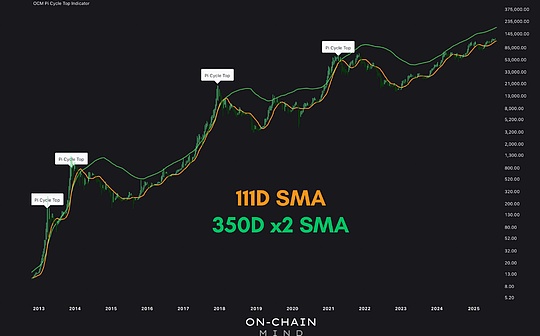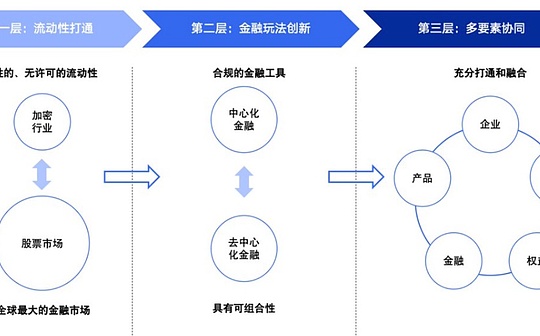
Source: Lawyer Shao Shiwei
The Anti-Money Laundering Act has been in effect for 18 years since its implementation on January 1, 2007.From the international background, money laundering is becoming increasingly rampant, and transnational money laundering is becoming more and more frequent, seriously threatening the international financial order and the economic security of various countries.From the perspective of the domestic environment, with the rapid development of the financial market and the continuous progress of technological innovation, the means and methods of money laundering activities are also constantly being updated and evolved.Driven by many complex factors, the Anti-Money Laundering Law ushered in its first major revision.
On April 23, 2024, the “Anti-Money Laundering Law of the People’s Republic of China (Revised Draft)” (hereinafter referred to as the “Revised Draft”) was submitted to the Ninth Meeting of the Standing Committee of the 14th National People’s Congress for deliberation.The issue of virtual asset money laundering is also one of the important backgrounds of this revision.
According to the legislative plan, the revised draft will be expected to be passed in 2025.What possible impact will the revision of the Anti-Money Laundering Act have on the Web3 industry?This article interprets the “Revised Draft” from this perspective.
01Expanding the scope of anti-money laundering obligations for specific non-financial institutions
According to Article 60 of the “Revised Draft”, when non-financial institutions engage in specific business, they should follow the relevant provisions of this Law on financial institutions to fulfill their anti-money laundering obligations and take corresponding anti-money laundering measures.This article adopts the method of enumeration and guarantee, listing real estate agencies, service providers that involve custodial customer asset/asset accounts, precious metal dealers, etc., as well as other institutions that need to fulfill anti-money laundering obligations.
Lawyer Shao’s interpretation
The Financial Action Task Force (FATF) is the most authoritative intergovernmental international organization in the world for anti-money laundering and terrorist financing.In 2007, China became a full member of the organization.In 2012, the Financial Action Task Force revised and issued a new international standard – “International Standards for Combating Money Laundering, Terrorist Financing and Proliferation Financing: FATF Recommendations” (hereinafter referred to as the “FATF Recommendations”), and based on this, starting from 2014Mutual assessments will be carried out for all members by 2022, aiming to comprehensively examine the compliance and effectiveness of members’ anti-money laundering work.
From 2018 to 2019, the FATF conducted a year-long assessment of my country’s anti-money laundering work.Among the 40 FATF recommendations, 6 of which are non-compliant in the compliance assessment, three of which involve specific non-financial industries, namely: specific non-financial industries and occupations: customer due diligence, specific non-financial industries andOccupation: Other measures, regulation of specific non-financial industries and occupations).Therefore, this revision makes up for the lack of this problem point.
The revised draft clarifies the scope of non-financial institutions with anti-money laundering obligations, which is the first issue that Web3 practitioners need to pay attention to.Because this determines whether the Anti-Money Laundering Act is “related to me” – that is, do Web3 institutions and practitioners have the obligation to fulfill the Anti-Money Laundering Act?
my country’s policy identifies business related to virtual currency as “illegal financial activities”. The “NFT digital collection” of localized applications of blockchain technology in China has also issued a way to prevent NFT-related financial risks. From this, it can be seen thatDomestic China has generally held a negative attitude towards the application of Web3’s financialization practice.
However, my country’s regulatory authorities’ understanding of blockchain technology and Web3-related applications is also gradually improving.For example, a rare large-scale article was established separately in the “China Financial Stability Report (2023)” released by the People’s Bank of China in December 2023″Crypto AssetsThe “partial, the term “virtual currency” has not been used, andProposed similar principles of “same business, same risks, same supervision” similar to the US SEC.So in the long run, the future development of Web3 in the country still has unlimited possibilities and potential.So, for industries involving the Web3 field that require users to provide asset accounts and services that include user transactions, Lawyer Shao believes that anti-money laundering obligations need to be fulfilled.
02From “rules-based” to “risk-based”
In the “Draft Revision”, such as Article 21, “Adjust money laundering supervision resources according to the risk situation and take corresponding risk prevention and control measures”; Article 28, “Financial institutions shall comply with relevant regulations to take risks and shall not takeManagement measures that are obviously inconsistent with the risk situation” are all concrete manifestations of the “risk-based” principle.
“Customer Due Diligence” replaces “Customer Identification”
Article 3 of the Anti-Money Laundering Law stipulates that financial institutions and specific non-financial institutions should establish and improve customer identity identification systems, but Article 4 of the “Revised Draft” replaces “identity identification” with “due diligence”, and Article 26 stipulates that “financialInstitutions shall establish a customer due diligence system in accordance with regulations and understand the customer’s identity, transaction background and risk status through due diligence.”
Article 28, paragraph 2 stipulates the scope of “money laundering management measures”: “The money laundering risk management measures referred to in this Law include continuous monitoring and verification of customers and their transaction conditions, restricting transaction methods, amounts or frequency, and restricting business types., refusal to handle business, terminate business relationships, etc. “
Lawyer Shao’s interpretation
The 2012 “FAFT Recommendation” established a “risk-based” regulatory system, replacing the “rules-based” regulatory system in previous regulations.The concept of “risk-based” is simply to require anti-money laundering entities to adopt differentiated anti-money laundering measures for different risk areas through scientific assessments to improve the effectiveness of anti-money laundering work.This revision also implements the working principle of “risk-based”.
Therefore, this also reminds that Web3 platforms and service providers also need to fulfill their corresponding compliance review obligations based on the specific service content provided to users.Not only should the user be static formal review (the certificate is true and the person and the certificate are consistent), but the “due diligence” working method should be adopted to keep dynamic attention to the user, comprehensively analyze the actual controller and ultimate beneficiary of the customer’s assets, andThe consistency between customer transaction activities and their identity background, business needs, risk status, source of funds and uses should be reviewed.
For the Web3 industry, to do a good job in anti-money laundering in commercial services, KYC, KYB, KYT and other means need to be used.
KYC (Know Your Customer, Know Your Customer) is a formal review of customer identity verification; KYB (Know Your Business, Know Your Business) is a formal review of the legality and compliance of customer business activities, such as the legality of transactions,Transaction purpose, funding source, etc.; KYB and KYC methods are more suitable for the traditional financial field, but based on the characteristics of blockchain such as decentralization and anonymity, it becomes very necessary for data monitoring of on-chain transactions.
KYT (Know Your Transcations, know your transactions) isAnti-money laundering methods that are more suitable for the Web3 industry, It can continuously track all addresses controlled by specific entities according to different anti-money laundering strategies, collect intelligence related to the source or destination of funds in real time, accurately identify high-risk activities, and use on-chain data tracking and digital asset traceability technology,Curb illegal activities such as money laundering.
03Compliance exemption from diligence and due diligence of directors, supervisors and senior officials
Compared with the Anti-Money Laundering Law, the diligence and duty exemption clause of directors, supervisors and senior executives is mentioned for the first time in the revised draft.According to Article 53 of the “Revised Draft”, “If the directors, supervisors, senior management personnel or other directly responsible persons of financial institutions can prove that they have taken anti-money laundering measures diligently and conscientiously, they may not be punished.”
Lawyer Shao’s interpretation
In the field of criminal litigation, the procuratorate may make a decision not to prosecute enterprises that meet the conditions after completing the compliance rectification requirements.The compliance exemption clause for the diligence and due diligence of directors, supervisors and senior management as stipulated in Article 53 of the “Draft Amendment” can be regarded asCriminal compliance is not prosecuted in the field of anti-money laundering.
Weight lifting is to show lightness and assume comprehensive and complete anti-money laundering obligations is the responsibility of financial institutions themselves. The Anti-Money Laundering Law and hundreds of supporting regulatory documents are also mainly restricted to financial institutions.my country’s legislation itself has not been long for regulatory practices on specific non-financial institutions, and experience still needs to be accumulated. In other words, due to the lack of practical anti-money laundering guidelines, the relevant Web3 industry is about whether the company belongs to “non-specific financial institutions.” “The scope of ” and if it belongs, how should anti-money laundering work be carried out, you can only cross the river by feeling the stones.Therefore, due to the lack of regulatory legislation itself, relevant consequences still occur when Web3 companies have fulfilled their general anti-money laundering obligations.Nor should heavier legal responsibilities be imposed on the directors, supervisors and senior personnel of the enterprise.
04Cooperation of overseas financial institutions
Article 46 of the “Draft Revision” stipulates that in the process of investigating money laundering and terrorist financing activities in accordance with the law, relevant state agencies may require the opening of an agency bank account within the country or have other existence with our country in accordance with the principle of reciprocity or after consultation with relevant countries.Overseas financial institutions that have close financial ties will cooperate.
Lawyer Shao’s interpretation
Can the Web3 project go overseas to avoid domestic anti-money laundering obligations?This clause is answered.According to the principles of personal jurisdiction and protective jurisdiction in criminal jurisdiction, my country’s competent authorities may require agency accounts or overseas financial institutions to cooperate.
Another similar question,Do foreign Web3 projects need to comply with anti-money laundering obligations in other countries?Taking Binance, the world’s largest cryptocurrency exchange, as an example, on April 30, 2024, Binance was fined US$4.3 billion for being accused of violating the US anti-money laundering law by the US government. At the same time, the founder Zhao Changpeng was sentenced to four times by the local U.S. court.Months in prison.The registered address of Binance Exchange is in Malta.
In the context of globalization, the importance of anti-money laundering is self-evident. It not only concerns the stable operation of the financial system, but also is an indispensable part of ensuring national security.Because of this, regulatory authorities in countries around the world attach great importance to anti-money laundering.At the same time, for criminal crimes, the criminal jurisdiction of various countries also has a certain extraterritorial extension, soFor Web3 practitioners, engaging in business activities in any country requires extra attention to anti-money laundering.
05Pay attention to the risks of new types of money laundering
Article 21 of the “Revised Draft” mentioned that “the administrative department of the State Council’s anti-money laundering, in conjunction with relevant state agencies, conducts national and industry money laundering risk assessments, timely monitors new types of money laundering risks, allocates anti-money laundering supervision resources based on the risk situation, and adopts corresponding risk prevention and controlmeasure.”
Public anti-money laundering obligations
The Anti-Money Laundering Act only mentioned the anti-money laundering obligations of “units and individuals” twice, but it was mentioned as many as 7 times in the “Revised Draft”, mainly involving: not engaging in/providing convenience for money laundering activities and cooperating with financeThe agency’s due diligence obligations, reporting of money laundering activities, and the obligation to take special anti-money laundering measures on the relevant list.
Lawyer Shao’s interpretation
Yan Lixin, executive director of the China Anti-Money Laundering Research Center of Fudan University, said, “The most important, most urgent, and most necessary to raise it to the legal level to solve is the money laundering problem involving virtual assets.” “Using cryptocurrency,Money laundering of virtual assets has gradually become a mainstream trend.”
As early as 2013, the People’s Bank of China and five other ministries issued the “Notice on Preventing Bitcoin Risks”, which mentioned that Bitcoin “does not have the same legal status as currency and cannot and should not be circulated in the market as currency.Use”; in 2021, ten ministries and commissions issued the “Notice on Further Preventing and Disposing of Speculation Risks in Virtual Currency Transactions”, reiterating the aforementioned view and saying that “virtual currency-related business activities are illegal financial activities.”But the reality is that criminals are increasingly using virtual currencies to launder money and illegally exchange through “foreign exchange crossover” using virtual currencies as a medium.
Combined with the concerns about the risks of new types of money laundering in the “Revised Draft” and the public’s anti-money laundering obligations, it can be predicted that the country will strengthen the crackdown and punishment of virtual currency transactions in the future.Although there are no relevant laws and policies that prohibit virtual currency transactions between individuals,But in the context of the amendment to the Anti-Money Laundering Act, the subjects of OTC transactions may be subject to heavier attention obligationsFor example, the difficulty of thawing of bank cards caused by transactions may become increasingly difficult; whether the transaction subject should know that it is a money laundering crime may be appropriately reduced in practice.
Written at the end
Regarding the revised draft, Wang Xin, professor of the Law School of Peking University and an expert who participated in the discussion of the revised draft of the Anti-Money Laundering Law, said, “The Anti-Money Laundering Law involves a wide range of areas, and it is difficult to cover everything in the revised draft. We can only first put the most urgent content framework.It manifests sexually.”Therefore, the revised draft failed to make more clear provisions on anti-money laundering supervision in the Web3 industry.Another practical reason is that as an emerging industry, legislation in various countries is also being explored.
Everything has two sides, and the same is true for the Web3 field.While bringing unprecedented opportunities to financial innovation and the digital economy, it also provides new channels for illegal activities such as money laundering.The lack of supervision will hinder the healthy development of the Web3 industry to a certain extent, but the development speed of the industry will inevitably be ahead of supervision.Therefore, in order for the industry to develop continuously, healthily and stably, Web3 practitioners must attach great importance to anti-money laundering work and actively fulfill relevant anti-money laundering obligations.
What will happen to the development of Web3 in China in the future?No one can predict it.but,Only compliance can lead to a future.







